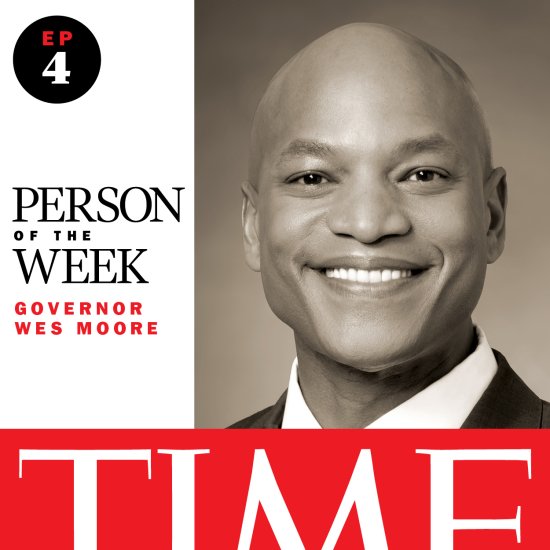
Maryland's governor is on a mission to reclaim American patriotism for people who feel alienated from it.
This is our Independence Day episode. And during a time that’s all about national unity (and hot dogs), I wanted to talk about why patriotism has become so controversial. In some ways, it’s not a surprise that after everything that’s happened in the United States over the past few years, there are lots of people—particularly young people and Democrats—who don’t consider themselves proud to be Americans.
More from TIME
[video id=tZLxOBBu autostart="viewable"]Read More: Where Wes Moore Comes From
So today, our guest is Maryland Gov. Wes Moore, a young Democrat who is on a mission to reclaim American patriotism for people who feel alienated from it. He’s only the third Black person in history to be elected governor and the only Black governor currently in office. He’s also a military veteran, a former nonprofit CEO, and a bestselling author.
[time-brightcove not-tgx=”true”]
Gov. Moore and I talked about how to reframe American patriotism, even while reckoning with our country’s racist past.
Tune in every Thursday, and join us as we continue to explore the minds that shape our world. You can listen to the full episode in the player above, but here are a handful of excerpts from our conversation:
On his thoughts on the U.S.’s exist from Afghanistan:
I absolutely think they could have done it better.
It was a very challenging time for a lot of Afghan vets… I personally was reconnecting with a lot of people who I served with, and a lot of us were touching base in some cases for the first time since we’ve really deployed. And that pain and that frustration was real… And it wasn’t political. This is not a political conversation. It wasn’t about what party did this or what administration. This was literally just a raw pain for a lot of people who had to watch what happened.
On how he reconciles his patriotism with awareness of America’s racist past:
I am literally the grandson of someone who was run out of this country by the Ku Klux Klan, right?…Right? So the fact that I can be both this grandson of someone who was run outta this country by the Ku Klux Klan, and also be the first black governor in the history of the state of Maryland. Both of those two things are facts and they can live together.
But the power of those two things living together is that shows the beauty of our evolution and the beauty of our journey, right. Is that we were never a country that was intended to be static. We were never a country that was intended to mark time. We were always intended to push and to pull and to draw that moral arc to a better place. And that’s why this idea that patriotism somehow means pulling back rights, that patriotism means telling people where they can and can’t go, what they can and can’t read, if women should have reproductive rights: that’s not patriotism.
On what it means to be a progressive patriot:
It’s reframing patriotism. It’s patriotism that when we say that we are gonna get to 100% clean energy by 2035, when we say things like, we want to ensure that we are gonna be the offshore wind capital of the United States… that’s a patriotic frame because it means that we’re creating a future that everybody can see and enjoy. When I say that we are going to be a place that is going to respect women’s reproductive rights and be a safe haven for abortion rights and stop injecting politicians in the conversations between that should be exclusively between a woman and her doctor, that’s patriotism. We not shying away from it. I am a very proud, progressive patriot.
On what it means to live in an imperfect union:
I want people to understand that we still have work to do, but at the same time, I want them understand that the work that we still have to do is not a reason for us not to acknowledge how much work has been done. You know, I feel like we put ourselves in these corners where it’s either you are blindly supportive, or you are blindly unsupportive, and I think both are really complex and really dangerous when they live in isolation. I think we have to remember that we are living in an imperfect union.
As long as we have people who do not have access to basics. As long as we have people don’t have access to healthcare, as long as we have children who are coming up in schools that are not giving ’em what they need. As long as we have people who are working jobs, in some cases, multiple jobs and still living at or below a poverty line, we are living in an imperfect society right now that has to be understood…
Yet at the same time, if we’re not acknowledging our progress, if we’re not acknowledging what we’ve gotten done, if we’re not taking a moment and taking a beat and giving thanks to those who put in the work before us, then we’re not just being disrespectful, we’re being disingenuous. And so the thing that I would ask people to do is make space for both. Make space for both of those truths to be real and to know that uh, that one should not contradict or counteract the other.
These excerpts have been edited and condensed for clarity.